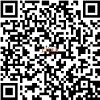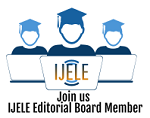(2) Rumi Li
(3) Agus Supriyadi
*corresponding author
AbstractProblem-based learning (PBL) is learning where students build knowledge based on learning experiences to solve problems. This model generally is known by teachers around the world and successfully attracted many researchers. However, very limited study has been conducted to analyze this learning model using the typology of knowledge by Pollock and Cruz (1999). This paper analyzed the PBL model using Pollock and Cruz instrument. This study discovered that learning knowledge and facilities contributed to the success of the learning process. However, the internalism typology instrument recommends for the teacher to select and choose appropriate knowledge. Particularly in specific student experience and scaffolding in constructivism through identification and screening system. Another instrument is externalism typology, found that the absorbs of knowledge depends on the developmental age and group compositions, primarily, in first-third grade students. This instrument suggested that a teacher must be more active to be facilitator and mediator in the absorption of knowledge through the assimilation and accommodations mechanism.
KeywordsProblem-based learning models; Typology of knowledge; Doxastic theory; Nondoxastic theory; Internalism theory
|
DOIhttps://doi.org/10.31763/ijele.v1i1.12 |
Article metrics10.31763/ijele.v1i1.12 Abstract views : 3489 | PDF views : 1825 |
Cite |
Full Text Download Download
|
References
S. H. Dunga, “An Analysis of the Determinants of Education Quality in Malawi: Pupil Reading Scores,†Mediterr. J. Soc. Sci., vol. 4, no. March 2013, pp. 337–342, 2013.
J. Muvawala, “Determinants of learning outcomes for primary education: A case of Uganda,†J. Stat. Africain, vol. 15, pp. 42–54, 2012.
OECD, ppt Building a High-Quality Teaching Profession - Cumbre Int 1. 2011.
K. Trigwell, M. Prosser, and F. Waterhouse, “Relations between teachers’ approaches to teaching and students’ approaches to learning,†High. Educ., vol. 37, no. 1, pp. 57–70, 1999.
E. M. Ganyaupfu, “Teaching Methods and Students ’ Academic Performance Teaching Methods and Students ’ Academic Performance,†vol. 2, no. September 2013, pp. 29–35, 2016.
T. Kini and A. Podolsky, “Research Report: Does Teaching Experience Increase Teacher Effectiveness? A Review of the Research,†2016.
E. Suryawati and K. Osman, “Contextual learning: Innovative approach towards the development of students’ scientific attitude and natural science performance,†Eurasia J. Math. Sci. Technol. Educ., vol. 14, no. 1, pp. 61–76, 2018.
C. E. Hmelo-Silver, “Problem-Based Learning: What and How Do Student Learn?,†Educ. Psychol. Rev., vol. 16, no. September 2004, pp. 235–266, 2004.
R. M. Marra, D. H. Jonassen, and B. Palmer, “Why Problem-Based Learning Works : Theoretical Foundations,†J. Excell. Coll. Teach., vol. 25, pp. 221–238, 2014.
D. Inel and A. G. Balim, “The effects of using problem-based learning in science and technology teaching upon students’ academic achievement and levels of structuring concepts,†Asia-Pacific Forum Sci. Learn. Teach., vol. 11, no. 2, pp. 1–23, 2010.
J. L. Pollock and J. Cruz, Contemporary Theories of Knowledge, Second Edi. Maryland: Rowman & Littlefield, 1999.
D. Tillman, “Implications of Problem Based Learning ( PBL ) in Elementary Schools Upon the K-12 Engineering Education Pipeline,†120th ASEE Annu. Conf. Expo., 2013.
M. Savin-Baden, “The Problem-Based Learning Landscape,†Planet, vol. 4, no. 1, pp. 4–6, 2013.
V. F. C. Servant-Miklos, “The Harvard Connection: How the Case Method Spawned Problem-Based Learning at McMaster University,†Heal. Prof. Educ., 2018.
R. I. Arends, Learning to Teach, 9th ed, Newyork: McGraw-Hill Companies, Inc., 2012.
J. Dewey, “A restatement of the relation of reflective thinking to educative process,†in How we think, Lexington, Massachusetts: D.C. Heath and Company, 1933, pp. 55–58.
K. Yajma, Y. Hayakawa, Y. Kashiwaba, A. Takahshi, and S. Oiguchi, “Construction of Active Learning Environment by the Student Project,†Procedia Comput. Sci., vol. 96, no. September, pp. 1489–1496, 2016.
L. S. Vygotsky, Mind in Society, 2nd ed. Harvard University Press, 1979.
J. W. Santrock, “Cognition and Language,†in Child Development, Thirteenth., Newyork: Mc. Graww Hill, 2010, p. 168.
E. H. J. Yew and K. Goh, “Problem-Based Learning: An Overview of its Process and Impact on Learning,†Heal. Prof. Educ., vol. 2, no. 2, pp. 75–79, 2016.
T. A. Nicholl and K. Lou, “A Model for Small-Group Problem-Based Learning in a Large Class Facilitated by One Instructor,†Am. J. Pharm. Educ., vol. 6, 2012.
J. Khumsikiew, S. Donsamak, and M. Saeteaw, “A Model of Small-Group Problem-Based Learning In Pharmacy Education: Teaching in the Clinical Environment,†IAFOR J. Educ., vol. 3, no. 2, 2017.
J. Merritt et al., “Problem-Based Learning in K – 8 Mathematics and Science Education : A Literature Review The Interdisciplinary Journal of Problem-based Learning Special Issue On Competency Orientation in Problem-BasED Learning Problem-Based Learning in K – 8 Mathematics a,†vol. 11, no. 2, pp. 5–17, 2017.
W.-Y. Lu and A. Jian, “Study on Teacher-Student Interaction in the Ideological and Political Theory Teaching Based on SPOC Model,†in 2nd Annual International Conference on Social Science and Contemporary Humanity Development (SSCHD 2016), 2016, no. Sschd, pp. 365–369.
P. K. Sahu and B. Sa, “Tutor’s Role in Problem-based learning: Minimum Interference with Maximum Responsibility,†J. Multidiscip. Contemp. Res., vol. 1, no. 2, pp. 1–9, 2015.
Martin J. Packer and Jessie Goicoechea, “Sociocultural and Constructivist Theories of Learning: Ontology, Not Just Epistemology,†Educational Psychologist, vol. 35, no. 4. pp. 227–241, 2000.
A. S. K. Wong, C. W. P. Li-Tsang, and A. M. H. Siu, “Effect of a social emotional learning programme for primary school students,†Hong Kong J. Occup. Ther., vol. 24, no. 2, pp. 56–63, 2014.
P. Hutchinson, “Children Designing & Engineering: Contextual Learning Units in Primary Design and Technology,†J. Ind. Teach. Educ., vol. 39, no. 3, pp. 122–145, 2002.
D. Herawaty and W. Widada, “The Influence of Contextual Learning Models and the Cognitive Conflict to Understand Mathematical Concepts and Problems Solving Abilities,†vol. 218, no. ICoMSE 2017, pp. 96–102, 2018.
D. Kauchak and P. Eggen, Educational Psychology: Windows on Classrooms. 2016.
A. Masek and S. Yamin, “The Effect of Problem Based Learning on Critical Thinking Ability: A Theoretical and Empirical Review,†Int. Rev. Soc. Sci. Humanit., vol. 2, no. 1, pp. 215–221, 2011.
H. S. Barrows, N. Tamblyn, and S. Jonas, Problem-Based Learning Preface. 1980.
R. E. Gewurtz, L. Coman, S. Dhillon, B. Jung, and P. Solomon, “Problem-based Learning and Theories of Teaching and Learning in Health Professional Education,†J. Perspect. Appl. Acad. Pract., vol. 4, no. 1, pp. 59–70, 2016.
E. De Graaf and A. Kolmos, “Characteristics of problem-based learning,†Int. J. Eng. Educ., vol. 5, pp. 657–662, 2003.
N. F. Harun, K. M. Yusof, M. Z. Jamaludin, and S. A. H. S. Hassan, “Motivation in Problem-based Learning Implementation,†Procedia - Soc. Behav. Sci., vol. 56, no. Ictlhe, pp. 233–242, 2012.
K. M. Yusof, S. A. H. S. Hassan, M. Z. Jamaludin, and N. F. Harun, “Cooperative Problem-based Learning (CPBL): Framework for Integrating Cooperative Learning and Problem-based Learning,†Procedia - Soc. Behav. Sci., vol. 56, no. Ictlhe, pp. 223–232, 2012.
R. J. Savery, “Overview of problem-based learning: Definitions and distinctions,†Essent. Readings Probl. Learn. Explor. Extending Leg. Howard S. Barrows, vol. 1, no. 1, pp. 9–20, 2014.
M. Afandi, E. Chamalah, and O. P. Wardani, Method and learning model in the school, 1st Editio., vol. 392, no. 2. Semarang: UNISSULA PRESS, 2013.
T. Tayeb, “Analysis and Benefits of Learning Models,†J. Pendidik. Dasar Islam, vol. 4, no. 2, pp. 48–55, 2017.
C. Eser and F. OzdamliI, “Features and characteristics of problem based learning,†Cypriot J. Educ. Sci., vol. 11, no. 4, pp. 195–202, 2016.
N. Sockalingam and H. G. Schmidt, “Characteristics of Problems for Problem-Based Learning: The Students’ Perspective,†Interdiscip. J. Probl. Learn., vol. 5, no. 1, pp. 3–16, 2012.
A. Mutallib, “The implementation of problem based learning to improve student achievement in Islam Religion Study,†Pedagogia, vol. 3, no. 1, pp. 1–9, 1997.
Redhana IW., “Problem based study model to improve critical and problem solve skill,†J. Pendidik. dan pengajaran, vol. 46, no. 1, p. 11, 2013.
S. A. Gallagher, B. T. Sher, W. J. Stepien, and D. Workman, “Implementing Problem-Based Learning in Science Classrooms,†Sch. Sci. Math., vol. 95, no. 3, pp. 136–146, 2010.
W. Hung, “Theory to reality: A few issues in implementing problem-based learning,†Educ. Technol. Res. Dev., vol. 59, no. 4, pp. 529–552, 2011.
A. Walker and H. Leary, “A Problem Based Learning Meta-Analysis: Differences Across Problem Types, Implementation Types, Disciplines, and Assessment Levels,†Interdiscip. J. Probl. Learn., vol. 3, no. 1, pp. 6–28, 2012.
A. Steinemann, “Implementing Sustainable Development through Problem-Based Learning: Pedagogy and Practice,†J. Prof. Issues Eng. Educ. Pract., vol. 129, no. 4, pp. 216–224, 2003.
C. E. Hmelo-Silver, R. G. Duncan, and C. A. Chinn, “Scaffolding and achievement in problem-based and inquiry learning: A response to Kirschner, Sweller, and Clark (2006),†Educ. Psychol., vol. 42, no. 2, pp. 99–107, 2007.
L. Hemker, C. Prescher, and S. Narciss, “Design and Evaluation of a Problem Based Learning Environment for Teacher Training,†Interdiscip. J. Probl. Learn., vol. 11, no. 2, pp. 5–17, 2017.
R. A. Al-Naggar and Y. V Bobryshev, “Community Medicine & Health Education Effect of SAFE Intervention on Pattern of Barriers to Trichiasis Surgery,†J. Community Med. Health Educ., vol. 2, no. 7, pp. 2–5, 2012.
Refbacks
- There are currently no refbacks.
Copyright (c) 2019 Iim Imandala, Rumi Li, Agus Supriyadi

This work is licensed under a Creative Commons Attribution-ShareAlike 4.0 International License.

International Journal of Education and Learning
ISSNÂ 2684-9240
Published by Association for Scientific Computing Electronics and Engineering (ASCEE)
W : http://pubs2.ascee.org/index.php/ijele
E : zalik@ascee.org

This work is licensed under a Creative Commons Attribution-ShareAlike 4.0 International License.






















